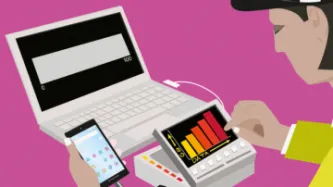Search
Content type: News & Analysis
We’ve been warning for a while now about the risks of AI Assistants. Are these assistants designed for us or to exploit us?The answer to that question hinges on whether the firms building these tools are considering security and privacy from the outset. The initial launches over the last couple of years were not promising.Now with OpenAI’s agent launch, users deserve to know whether these firms are considering these risks and designing their service for people in the real world. The OpenAI…
Content type: News & Analysis
We’ve been asked a lot lately about whether it is safe to travel, particularly to the US. And it’s not surprising why: the US Government is increasing their cruelty at borders.Border management today is fueled by our data, but government officials want more. They want as much data as they can get to catch you out. They’ve reportedly detained or deported people based on their free speech activities, denying entry on tenuous grounds like having the wrong photos on phones (including in in the ‘…
Content type: Examples
Cellebrite, which provides technology to unlock phones and access their data, asks its government agency customers to keep both its technology and the fact that they used it secret, a leaked company training video shows. Such a request violates the rights of the public to expect that authorities are transparent when asking judges to authorise searches. In the video, the company employee claims that disclosure could hinder law enforcement and help criminals.https://techcrunch.com/2023/08/19/…
Content type: Press release
The decision by the EU’s oversight body follows a year-long inquiry prompted by complaints outlining how EU bodies and agencies are cooperating with governments around the world to increase their surveillance powers filed by Privacy International, Access Now, the Border Violence Monitoring Network, Homo Digitalis, International Federation for Human Rights (FIDH), and Sea-Watch.The complainants welcome the decision by the European Ombudsman and call on the Commission to urgently review its…
Content type: News & Analysis
In a judgment of 14 October 2022, the UK High Court ordered the UK Home Office to provide remedy to the thousands of migrants affected by its unlawful policy and practice of seizing mobile phones from people arriving by small boats to UK shores.
The availability and spread of new technologies, and the exponential amounts of data they generate, are regularly being abused by governments to surveil and control people - but these new forms of surveillance are only starting to make their way through…
Content type: Advocacy
Privacy International (PI) welcomes the call of the Special Rapporteur on the human rights of migrants to assess the human rights impact of current and newly established border management measures with the aim of identifying effective ways to prevent human rights violations at international borders, both on land and at sea.
The issues highlighted in the call for submissions are ones that PI has been investigating, reporting and monitoring as part of our campaigns demanding a human rights…
Content type: Examples
Following a complaint from the Association for Civil Rights in Israel, the country's attorney general has said the Shin Bet security agency's use of mobile phone tracking technology to monitor and threaten Palestinian protesters at Jerusalem's Al Aqsa Mosque in May 2021 was a legitimate security tool, Josef Federman reports at ABC News. Shin Bet sent a text message to both Palestinian residents of east Jerusalem and Palestinian citizens of Israel who were determined to be in the area of the…
Content type: Examples
Ukraine and Russia are both weaponising facial recognition - but Russia is using it to hunt down anti-war protesters, holding and sometimes torturing anyone who refuses to be photographed, while Ukraine is using software donated by Clearview AI to help find Russian infiltrators at checkpoints, identify the dead and reunite families. Russia's widespread surveillance means that activists can be followed and arrested anywhere. In an approved, peaceful anti-government rally in Moscow in 2019,…
Content type: Long Read
In a roundtable available on YouTube, co-hosted with Garden Court Chambers, Privacy International brought together immigration law practitioners to discuss how they’ve used privacy and data protection law to seek information or redress for their clients.Index:1. UK Border 20252. Super-complaint and judicial review challenge to data sharing3. Mobile phone seizure and extraction4. Freedom of Information Act requestsThe dystopian future: UK Border 2025To set the scene on how the future may look…
Content type: News & Analysis
As Amnesty International and Forbidden Stories continue to publish crucial information about the potential targets of NSO Group’s spyware, we know this much already: something needs to be done.
But what exactly needs to be done is less obvious. Even though this is not the first time that the world has learned about major abuses by the surveillance industry (indeed, it’s not even the first time this month), it’s difficult to know what needs to change.
So how can the proliferation and use of…
Content type: News & Analysis
Around the world, we see migration authorities use technology to analyse the devices of asylum seekers. The UK via the Policing Bill includes immigration officers amongst those who can exercise powers to extract information from electronic devices. There are two overarching reasons why this is problematic:
The sole provision in the Policing Bill to extract information rests on voluntary provision and agreement, which fails to account for the power imbalance between individual and state. This…
Content type: News & Analysis
It is difficult to imagine a more intrusive invasion of privacy than the search of a personal or home computer ... when connected to the internet, computers serve as portals to an almost infinite amount of information that is shared between different users and is stored almost anywhere in the world.
R v Vu 2013 SCC 60, [2013] 3 SCR 657 at [40] and [41].
The controversial Police Crime Sentencing and Courts Bill includes provision for extracting data from electronic devices.
The Bill…
Content type: Explainer
Where are my images, contacts and documents stored?
You generate data every time you use your phone e.g. you generate data when you take photographs or record videos, when you create or edit notes and documents on the go, and when you add new names and numbers to your contacts directory.
All this data is created through dedicated apps - your camera and photo apps, social media apps, notes apps, and your contacts app are just some examples.
It is important to note that when you create any…
Content type: Explainer
What are my 'unique identifiers' and where are they stored?
Your phone and your SIM card contain unique identifiers about you, which can be accessed by the police to identify you.
The IMSI (International Mobile Subscriber Identity) is a unique number associated with your SIM card. It doesn't change, even if you put the SIM card into a different phone.
If you have a mobile phone subscription, the IMSI will be associated with personal information such as your name and address.
The IMEI (…
Content type: Explainer
Where are my communications stored?
Text messages/phone calls: Traditional cellphone communications happen over the cellular network. You usually access those with the text message and phone call apps that are provided as standard on your phone. While phone calls aren’t stored anywhere, text messages are stored locally on your and the recipient’s devices. They might also be temporarily stored by the network provider.
Messaging apps: Messaging platforms enable fairly secure communication…











